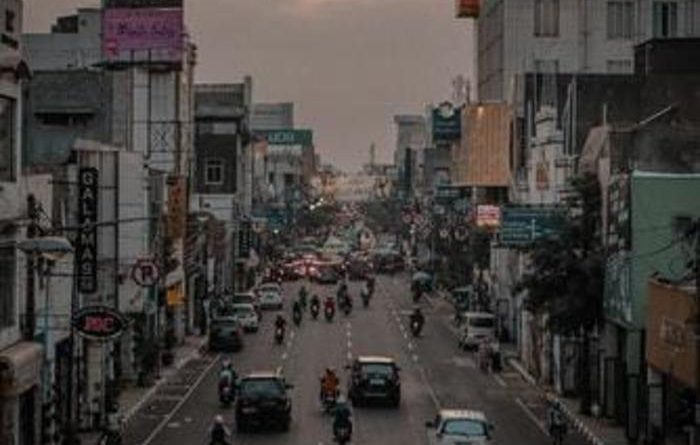Indonesian 2020 Omnibus Bill and Civil Society’s struggle for Human Rights, Democracy and Environmental Justice
Lee Seul-ki (Free-lancer)
Indonesian civil society is now fighting against the threat of a setback in human rights, democracy and environmental justice. Since September last year, human rights, democracy, media and environmental activist groups have been waging an all-out struggle against the Joko Widodo administration on the streets and social media, risking the COVID 19 pandemic. What is going on in Indonesia, a nation once considered the champion of democracy in Southeast Asia?
The Joko Widodo (hereinafter referred to as “Jokowi”) administration, which succeeded in re-election in 2019, has been taking steps toward authoritarianism since the end of last year. The revision of the Anti-Corruption Commission (KPK) law, a corruption watchdog for public officials, last year, signals a full-fledged revision. The Anti-Corruption Commission is a government-independent corruption watchdog designed to overcome “KKN, Korupsi, Kolusi, Nepotism,” a legacy of the Suharto military regime (1965-1998), which was ousted by popular protests in 1998. It was established at the end of 2003 based on the 2002 Corruption Prevention Commission Act. It investigated and indicted high-ranking government officials, including the sports minister and the police chief, to bring criminal punishment. Since Suharto, the KPK has been regarded as the most successful organization in Indonesia which implemented the role of watchdog in the most democratic way. At the same time, the organization has been strongly opposed by political and business leaders who have been in close contact with the military government in the past. However, Jokowi’s government turned a blind eye to successive street protests by university students and other citizens, and proposed and passed a revised bill in September last year that would shake the independence of the KPK’s investigation and prosecution.
The Jokowi government then proposed the “2020 Omnibus Bill” and the “Revision of the Mine Act” along with the goal of passing the bill by the end of this year. The two bills, which call for deregulation in the industrial sector, have once again faced strong opposition from civil society. This is due to the concerns that the bills are for the convenience of some business leaders and high-ranking government officials who hold stakes in those businesses. In the case of the revision of the 2020 Mine Act, it was passed by the Indonesian parliament in May as the original government-proposed bill despite strong opposition from civil society. The bill was passed ignoring the democratic procedures as they blocked citizens from participating twice in the past year. Indonesian civil society believes that the Jokowi government promised to improve the lives of ordinary citizens and develop infrastructure to improve the welfare of the people of the country, but has now abandoned this. As a result, citizens say they must relentlessly fight to stop the passage of the 2020 Omnibus Bill at least. Indonesian civil society has been calling for the suspension of parliamentary deliberation on the omnibus bill and the complete withdrawal of the legislation since the Feb. 12 parliamentary motion.
The “2020 Omnibus Bill” is a deregulation package proposed by the Jokowi administration to the parliament on February 12, 2020, and its official name is “RUU Cipta Kerja.” The 1,028-page bill consists of 15 chapters and 174 articles. The plan calls for a package revision of 1,244 clauses of 79 laws, including the existing press law, labor law and environmental law. It largely calls for abolishing or easing existing regulations related to employment, environment and business permits, and also includes measures to impose government sanctions in case of violation of the revised law. However, while there are 148 clauses on investment activities, land acquisition, business activities, central government investment and national strategic projects covered in the bill, there are only 12 clauses on employment and job creation, with much of the bill focused on investment and business deregulation. For this reason, the Omnibus Bill review committee also suggested changing the title of the bill to, “Act for the Ease of Business Activities,” rather than, “Act on Job Creation.”
The concern of the Indonesian civil society about the “2020 Omnibus Bill” is that first, there is a serious lack of democratic representation in the process of proposing and promoting the bill, and second, it has completely ignored the parliamentary recess situation and the global health crisis caused by COVID-19. Finally, with the revision of the Mine Act and the Omnibus Bill, there are also growing concerns that it runs counter to the global flow of moving away from coal energy conversion and natural ecosystem regeneration. This is why the “Tolakomninuslaw movement” (#Tolakomninuslaw) is spreading like wildfire in Indonesian civil society.
The Indonesian Legal Aid Foundation (YLBHI), Indonesia’s leading human rights and democracy organization, commented on the 2020 omnibus bill as, “a development obsession that takes away workers’ rights and demands sacrifices.” The Indonesian Environment Forum (WALHI) said, “The bill, created by the presidential palace and the ruling class of the parliament, legalized dirty projects and turned a blind eye to the environment and humanity.” Indonesia’s Association of Independent Journalists (AJI) has expressed concern that it is a regressive bill as “the government holds the authority to grant business licenses to media companies and imposes sanctions if they do not comply with government measures.” Not long ago, even the head of the National Human Rights Commission of Korea came forward and recommended that the president and the parliament stop deliberating the bill out of regard for realizing, protecting and respecting the human rights of all Indonesian citizens.
In the meantime, it has been reported that the government and parliament have recently launched a campaign to promote “#IndonesiaButuhKerja,” which has mobilized public entertainers. Citizens are very angry at the decision to give 5 million rupiah (about 400,000 won) to 10 million rupiah (about 810,000 won) to popular entertainers who upload promotional posts through hashtags for the campaign on Twitter and other social media.
The 2020 omnibus bill has emerged as the biggest democratic challenge to the Indonesian civil society since democratization. After Suharto’s resignation in 1998, Indonesia is situated in a critical juncture of time in which human rights and democratic structures might begin to degrade, including reforms such as the fact-finding of 1965-66 anti-communist massacres, the liquidation of the structure of collusion between politics and business, and the introduction of development justice and environmental protection policies. Why is Indonesia, which achieved political democratization early in Southeast Asia thanks to its dynamic civil society struggle, facing this crisis?
Indonesian economic policy experts and economists have voiced concerns over the economic liberalism of Joko Widodo’s government since he was a first-term candidate. It is said, “Jokowi is a market-friendly leader who is famous for his pro-working class image and knows the importance of welfare”, but “his economic policy stance is tailored to the eyes of businessmen and investors rather than the general public. In fact, the Jokowi government has focused on “economic development” instead of clearing up the past of state violence, resolving poverty and economic inequality, and realizing environmental justice, starting with the cabinet reshuffle in 2016, and now enters its second year in office. Australian researcher Eve Warberton said in her paper titled, “Jokowi and the New Developmentalism (2016)”, that Jokowi created a new political landscape to implement economic development agendas after securing political stability based on explosive public support early in his term. Paradoxically, at this time, many Indonesian researchers began to look back on the days of the Suharto military regime to understand Jokowi.
The political authoritarianism that Indonesia is experiencing now appears to be the result of the president’s compromise with a multi-party elite democracy of real politics instead of reform toward establishing a strong development regime. In the Indonesian political reality based on the solid traditional elite, military politics, and patronage-driven democracy, President Joko Widodo chose a political alliance that minimizes resistance from the ruling class, instead of taking political risks such as clearing up its past history. This confirms once again that democratization cannot be completed just by the change of the ruling and opposition parties or the emergence of a popularly elected government in Asian society, which has long experienced authoritarian politics. How can Asian civil society overcome the repeated experience of trampling on the values of human rights, democracy, and justice in the name of developing an underdeveloped economy and infrastructure?



